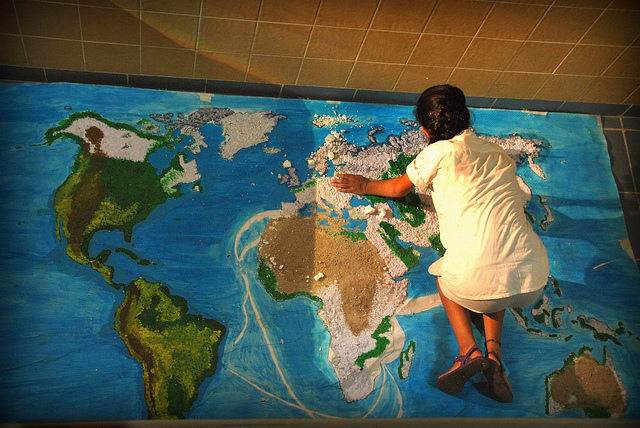
This week 40 years ago, Indonesia invaded East Timor.
The troops rolled in just nine days after the former Portuguese colony had declared its independence, beginning 25 years of a brutal military occupation which resulted in the deaths of well over 200,000 people.
The Timorese endured the horrors of a bitter conflict involving the deliberate wholesale destruction of crops and severe human rights abuses including torture and forced sterilisations, before finally, against all odds, reclaiming their independence some 27 years later.
However, today their struggle for full sovereignty – complete with permanent maritime boundaries – continues.
As a sovereign nation East Timor is entitled to settle its borders with its neighbours, but when the Timorese look at a map, it’s still not clear where their country starts and where it ends.
Its old foe Indonesia has come willingly to the negotiating table, and in good faith the two nations have settled 98 per cent of the land boundaries and have commenced discussions about maritime boundaries.
Its other neighbour, Australia, on the other hand has been far less cooperative on such matters.
Successive Australian governments have stubbornly refused to negotiate permanent maritime boundaries with the tiny nation. Instead, Australia has jostled East Timor into a series of “temporary resource sharing agreements” all of which short-change the second poorest country in Asia out of billions of dollars in oil and gas resources.
Since the discovery of vast oil deposits under the Timor Sea in the early 1970s, oil has been the ever-present third player in Australia’s relationship with East Timor.
In the lead up to the Indonesian invasion of East Timor, Australia’s ambassador to Indonesia Richard Woolcott infamously sent a cable back to Canberra suggesting Australia’s chances of securing a more lucrative deal regarding the riches of the Timor Sea would be superior if Indonesia controlled East Timor.
This set the tone for the next two decades, with Australian governments all too eager to cosy up to the Suharto dictatorship for political and economic gain.
Even after what was to be Australia’s great redemptive moment in leading the 1999 mission to restore peace after Timor’s historic vote for independence, Australian governments have been reluctant to embrace a truly principled approach toward East Timor.
Since 1999 the Australian government has most likely taken more revenue from contested oil and gas resources than it has given to East Timor in combined military and humanitarian aid, prompting Professor Clinton Fernandes, an academic expert on Timor at University of New South Wales, to recently remark that “East Timor is Australia’s biggest foreign aid donor – this is not a typo.”
As if short-changing a neighbour wasn’t dishonourable enough in itself, we now also have claims from a former senior-ranking Australian intelligence officer that the government bugged East Timor’s cabinet rooms during the negotiations over a gas field expected to generate about $40 billion in government revenues.
Since the 1982 United Nations Convention on the Law of the Sea, international law has strongly favoured median line boundaries between countries less than 400 nautical miles apart – that is, draw a line halfway between the two countries’ coastlines.

Timor Sea Justice Campaign
While Australia agreed to a median line solution with New Zealand in 2004 to resolve overlapping claims off Norfolk Island, it’s not so fair-minded when it comes to the resource rich Timor Sea. Australia has consistently refused to enter fresh negotiations with East Timor to establish permanent maritime boundaries.
Two months before East Timor’s independence, Australia withdrew its recognition of the maritime boundary jurisdiction of the International Court of Justice and the International Tribunal for the Law of the Sea. This leaves East Timor with limited legal avenues to challenge Australia’s behaviour and casts serious doubts about how confident the Australian government is of it’s own legal arguments.
As was the case during East Timor’s long struggle for independence, the solidarity movement in Australia will be crucial in shifting the Australian government’s policy. Once again our government is doing the wrong thing in East Timor and once again Australians that believe in a fair go need to step up and be heard.
The Timorese are not asking for our charity – they are simply asking for what is theirs by law. We have a duty to ensure our government respects this fact.
—
Tom Clarke is a spokesperson of the Timor Sea Justice Campaign in Melbourne.
Feature image: Timorese girl making a world map. Jaya Ramchandani/Flickr


